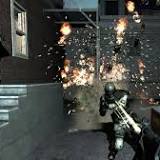Dementia Treatments Linked With Serious Side Effects: Study

Several antipsychotic treatments given to patients with dementia have been linked to serious side effects including heart failure, a study published Thursday has found.
"Antipsychotic use in people with dementia is associated with... a wide range of serious adverse outcomes including stroke, blood clots, heart attack, heart failure, fracture, pneumonia, and acute kidney injury," according to the study published in the British Medical Journal (BMJ).
Scientists found that the highest risks occur when treatment begins, "underscoring need for increased caution in early stages of treatment".
The antipsychotics -- risperidone, quetiapine, haloperidol and olanzapine -- are usually prescribed to patients with psychotic disorders such as schizophrenia.
They are also used to treat depression that is particularly resistant to other medications, as well as to treat patients suffering from dementia, such as Alzheimer's disease.
Antipsychotics do not cure these illnesses but are intended to calm certain symptoms such as aggressive behaviour.
The treatments are highly controversial due to the serious side-effects and their limited efficiency.
In France, as in the UK where the BMJ study was carried out, only risperidone and haloperidol are authorised to treat symptoms of dementia.
However, the BMJ states that the study is "observational" and that no "firm conclusions can be drawn about cause and effect".
It is possible that in some cases, the side-effect of pneumonia may be favoured over onset dementia.
Several neurologists praised the study at a time when antipsychotics are experiencing a resurgence in prescriptions since the Covid pandemic.
There "is a risk therefore that patients might be prescribed harmful antipsychotics simply because trained staff who can safely manage their behaviour are not sufficiently available," neurologist Dr Charles Marshall said, noting, however, that treatments may be justified in rare cases.
jdy/ic/alu/cbn/nmc/gv


 United Kingdom
United Kingdom Argentina
Argentina  Australia
Australia  Austria
Austria  Brazil
Brazil  Canada
Canada  Germany
Germany  Ireland
Ireland  Italy
Italy  Malaysia
Malaysia  Mexico
Mexico  New Zealand
New Zealand  Poland
Poland  South Africa
South Africa  United States
United States 





















